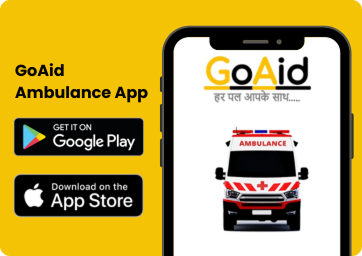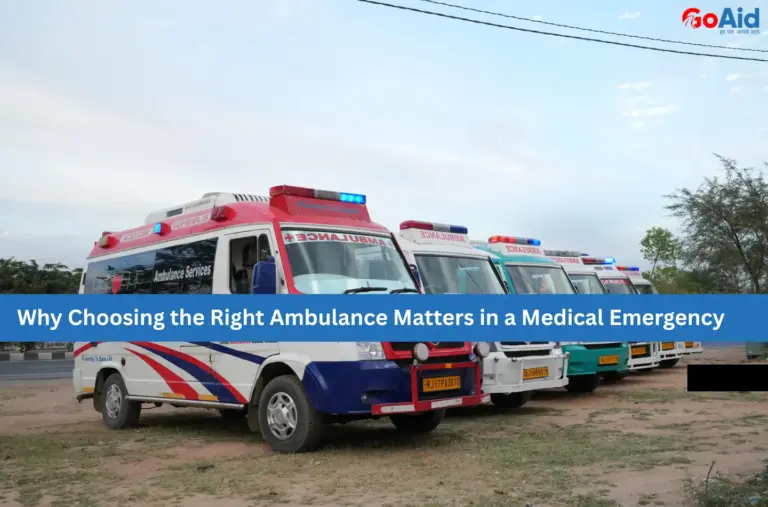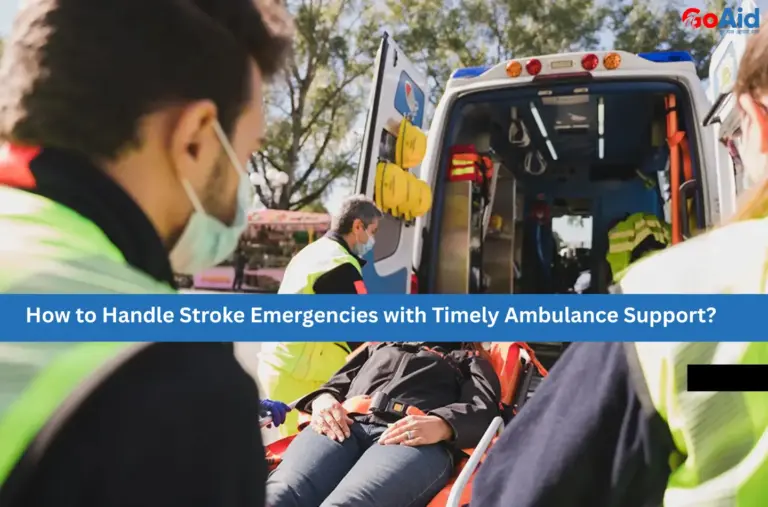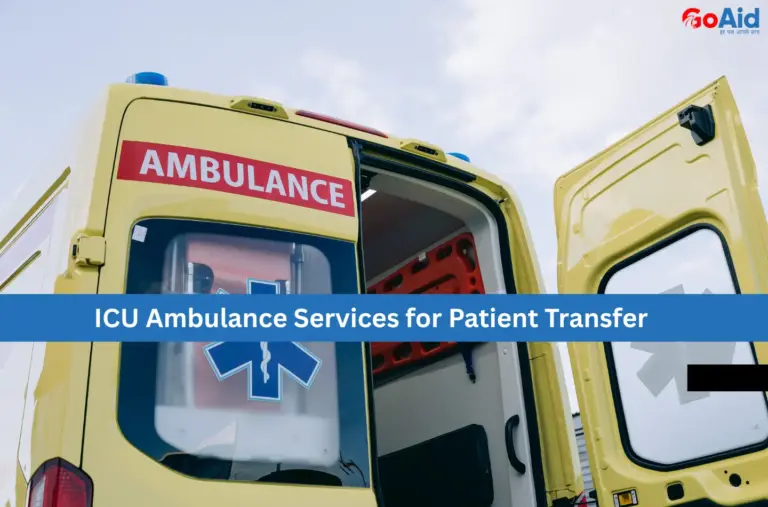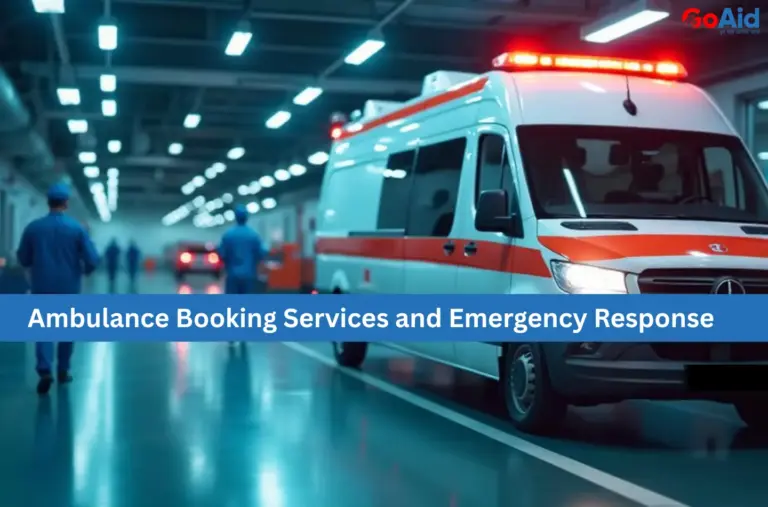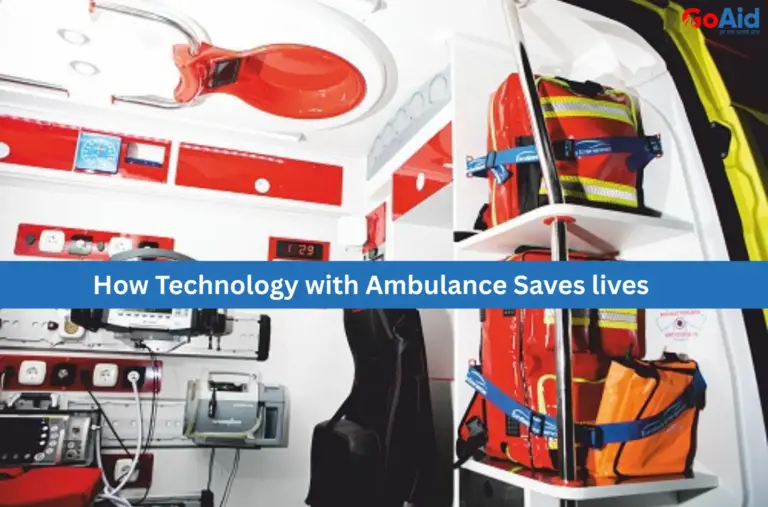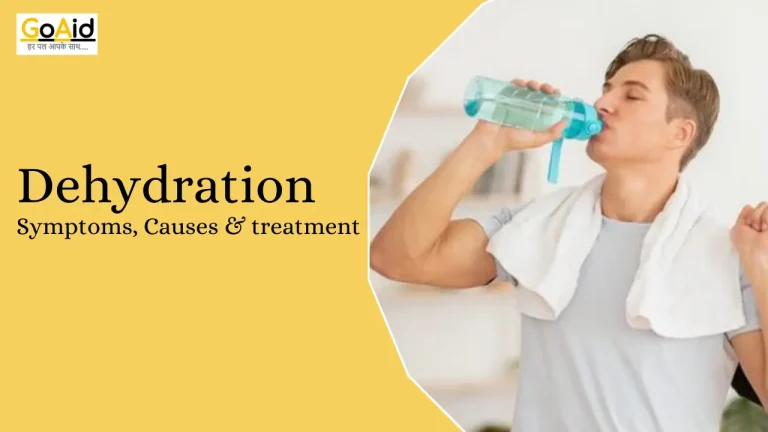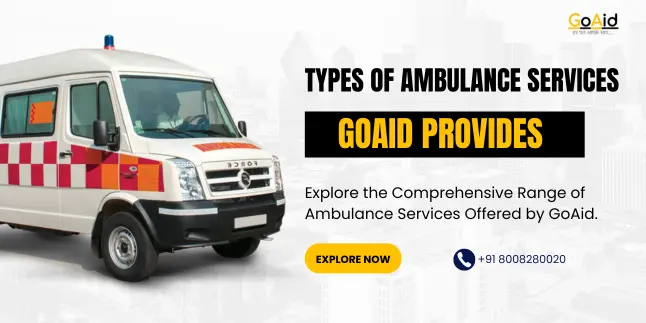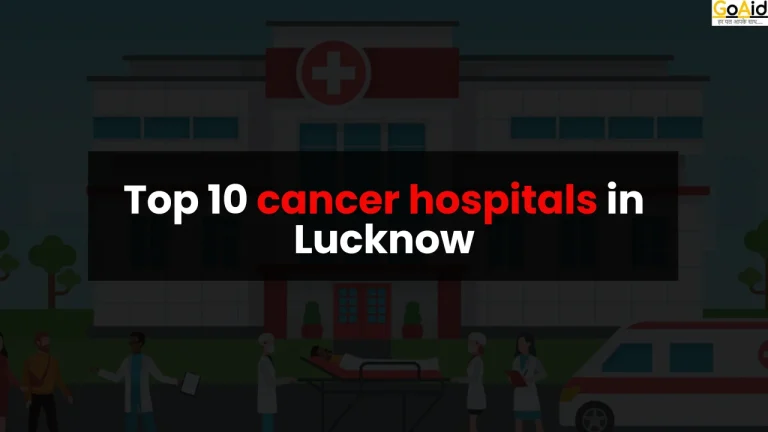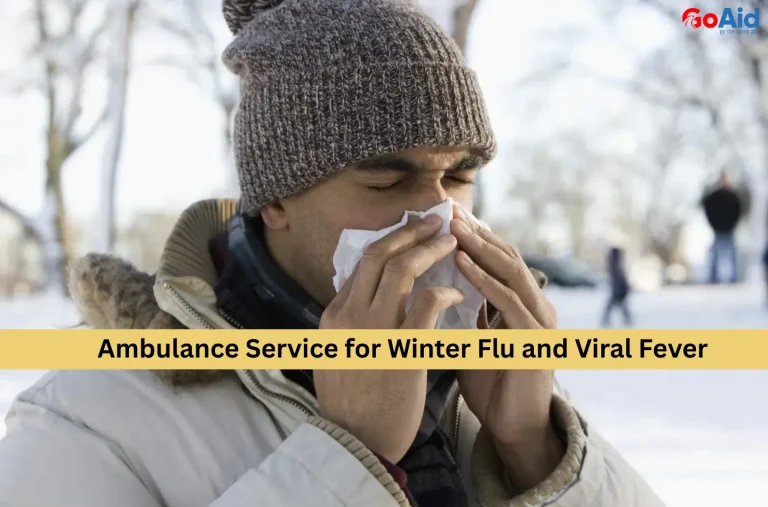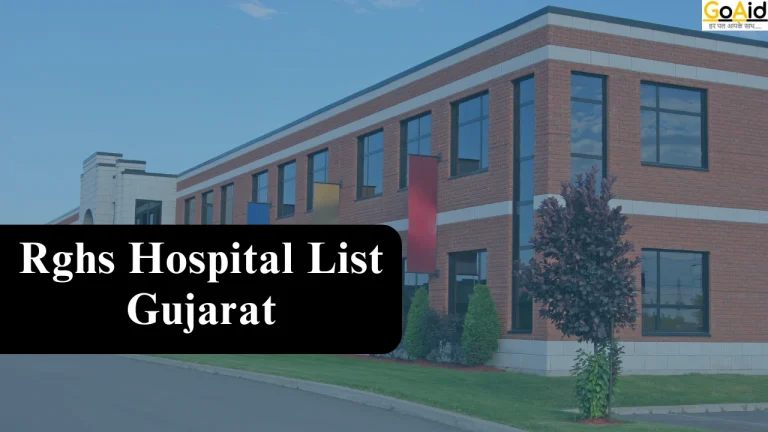In India, the hotels, resorts, and hospitality industry is a kind of industry that engages people in large numbers, and at the same time, there are many associated emergency medical risks deliberately ignored by the owners and the industrialists. However, it should be the matter of focus for each of the organizers.
This is why, in this blog, we have highlighted this topic mainly here. We have mentioned the need for ambulance services in the hotels, resorts & hospitality industry in India, their related common health and safety problems, the risky nature of the industry, and types of ambulances they might require. We have also highlighted the current challenges and solutions in providing ambulances to this industry, the future of the industryŌĆÖs medical needs, legal obligations for the on-site ambulances, and more. Are you excited to know all these details about them? Then read this blog to the end.
So, letŌĆÖs start-
Overview of the Resorts & Hospitality Industry in India
IndiaŌĆÖs resorts and hospitality industry is a vibrant and rapidly expanding sector, driven by both domestic and international tourism. Major cities, scenic destinations, and cultural hotspots attract millions of guests each year, fueling the growth of hotels, luxury resorts, and boutique stays.
The industry is characterized by its diversity, ranging from budget accommodations to high-end luxury properties, and it plays a crucial role in employment and economic development. With rising expectations for guest safety and experience, hospitality providers are investing more in health and emergency preparedness.
However, many establishments still lack adequate on-site medical support, leaving guests and staff vulnerable during medical emergencies. The industryŌĆÖs dynamic nature, frequent events, and large gatherings further amplify the need for robust emergency response systems, such as on-site ambulance services, to ensure guest well-being and maintain a positive reputation in a highly competitive market
Common Health & Safety Problems at Hotels, Resorts & the Hospitality Industry
Hotels, resorts, and hospitality venues face a range of health and safety challenges that can affect both guests and staff. Proactively addressing these risks is essential for maintaining high standards of safety and service.
1. Fire Hazards
Hotels are vulnerable to fire hazards due to kitchen operations, faulty wiring, and combustible materials. Fires can cause significant harm to guests and staff, making regular inspections and fire safety training essential.
2. Slips, Trips, and Falls
Wet floors, cluttered pathways, and uneven surfaces often lead to slips, trips, and falls. Such incidents can result in injuries to both guests and employees, highlighting the need for rigorous housekeeping and maintenance.
3. Security Breaches
Unauthorized access, theft, and inadequate surveillance can compromise guest safety and privacy. Strengthening security protocols and staff training is crucial to prevent security incidents.
4. Foodborne Illness
Improper food handling, storage, or hygiene can lead to foodborne illnesses among guests and staff. Strict food safety protocols and regular inspections are vital to prevent outbreaks and protect health.
5. Electrical Hazards
Faulty wiring, overloaded circuits, or exposed electrical components pose risks of electrocution and fire. Regular maintenance and staff training in electrical safety are necessary to mitigate these dangers.
6. Drowning Incidents
Hotels with pools or water features face the risk of drowning, especially when safety measures or supervision are lacking. Adequate fencing, lifeguards, and guest education are key preventive steps.
7. Pest Infestations
Rodents, insects, and bed bugs can compromise guest comfort and safety, as well as damage a hotelŌĆÖs reputation. Proactive pest management and cleanliness standards are essential to address this issue effectively
The Risky Nature of Hotels, Resorts & Hospitality Industry
The hotels, resorts, and hospitality industry in India is inherently high-risk due to the constant influx of guests, large-scale events, and 24/7 operations. With diverse facilities such as pools, restaurants, gyms, and banquet halls, these establishments face a wide array of safety and health hazards. Risks include fire outbreaks, foodborne illnesses, slips and falls, security incidents, and even cyber threats targeting sensitive guest data.┬Ā
The pressure to maintain impeccable guest experiences often leads to overlooked safety protocols, increasing vulnerability to accidents and emergencies. Labor shortages, evolving regulations, and the need for constant staff training further complicate risk management.
Additionally, the industryŌĆÖs reputation is highly sensitive to incidents, making even minor health or safety lapses potentially damaging. As guest expectations for safety and rapid emergency response rise, the need for robust health and safety systems, including on-site ambulance service, becomes increasingly critical for sustainable hospitality operations.
Current Problems Faced
Despite advancements, the hospitality industry continues to grapple with significant challenges that impact both guest and staff safety. Labor shortages make it difficult to maintain adequate staffing for emergency response and daily operations, while evolving guest expectations demand higher standards for health and safety.
Cybersecurity threats and data breaches are on the rise, putting sensitive information at risk and potentially disrupting services. Compliance with ever-changing food safety and hygiene regulations can be resource-intensive, and lapses may result in costly penalties or reputational harm.
The risk of physical injuries from slips, trips, falls, burns, and manual handling remains high, especially in busy kitchens, event spaces, and recreational areas. Security incidents, including theft and unauthorized access, further complicate the risk landscape. These ongoing problems highlight the urgent need for comprehensive safety protocols and reliable on-site ambulance service to ensure rapid response and minimize harm in emergencies.
Why Ambulance Services Are Essential for the Hotels, Resorts & Hospitality Industry?
On-site ambulance service is crucial for the hospitality industry due to its unique risks and operational demands.
- Immediate Medical Response: Ensures rapid care for sudden illnesses or injuries, minimizing health risks for guests and staff.
- Enhanced Guest Safety: Demonstrates commitment to guest well-being, improving reputation and guest confidence in the property.
- Compliance with Safety Standards: Meets regulatory requirements for emergency preparedness and workplace safety in hospitality environments.
- Efficient Event Management: Provides essential support during large gatherings, reducing response time for medical emergencies at events.
- Reduced Liability: Lowers the risk of legal claims and insurance costs by offering proactive emergency response and first aid on-site.
Types of Ambulance Services Might be Required in the Hotels, Resorts & Hospitality Industry
Hotels, resorts, and hospitality venues must be prepared for a variety of medical emergencies, requiring access to specialized ambulance services for guest and staff safety. Here are five essential types:
1. Basic Life Support (BLS) Ambulance
A Basic Life Support (BLS) ambulance is equipped for non-critical medical emergencies, such as minor injuries, fainting, or mild allergic reactions. It provides first aid, oxygen, and safe transport to the hospital, making it ideal for handling routine incidents in hospitality settings where immediate but basic care is needed.
2. Advanced Life Support (ALS) Ambulance
An Advanced Life Support (ALS) ambulance is staffed by paramedics and equipped with advanced medical tools for critical emergencies like cardiac arrest, severe trauma, or respiratory distress. It ensures rapid, life-saving intervention for guests or staff facing serious health crises.
Also Read: Difference between BLS Ambulance and ALS Ambulance
3. ICU/Ventilator Ambulance
An ICU or Ventilator ambulance is designed for patients requiring intensive monitoring and life support during transport. This is crucial for hotels and resorts located far from major hospitals, ensuring critical patients receive continuous care en route.
4. Event-Specific Ambulance
Event-specific ambulances are deployed during large gatherings, conferences, or weddings at hotels and resorts. They provide on-site emergency response and first aid, ensuring immediate care for any incident during high-traffic events.
5. Air Ambulance
Air ambulances are essential for remote resorts or destinations with limited access to hospitals. They enable rapid evacuation and transport for severe medical emergencies, ensuring timely care even in hard-to-reach locations.
Current Challenges in Providing Ambulance Services to Hotels, Resorts & the Hospitality Industry
Hotels, resorts, and hospitality venues face unique obstacles in ensuring timely and effective ambulance services for guests and staff. These challenges can hinder rapid emergency response and compromise safety standards.
1. Remote Locations:
Many resorts and hotels are located in remote or hard-to-reach areas, making it difficult for ambulances to arrive quickly during emergencies. Poor road infrastructure and long distances further delay critical care.
2. Lack of Organized Services:
Many hospitality venues lack access to professional, organized on-site ambulance service with trained paramedics and advanced medical equipment, leaving them unprepared for sudden medical emergencies.
3. High Operational Costs:
Maintaining a 24/7 ambulance presence, especially in luxury or large properties, can be financially burdensome, discouraging many establishments from investing in continuous emergency medical coverage.
4. Regulatory Complexity:
Navigating the complex landscape of health and safety regulations for ambulance services can slow down implementation and create compliance challenges for hotel management.
5. Untrained Staff:
Hotel and resort staff often lack proper emergency response and first aid training, which can lead to inadequate care before medical professionals arrive, increasing the risk of complications.
6. Limited Infrastructure:
Poor access roads, narrow driveways, or lack of clear entry points can make it challenging for ambulances to reach the scene quickly, especially during peak occupancy or events.
7. Communication Gaps:
Inefficient communication between hotel staff and ambulance providers can result in delays, misunderstandings, or misdirection during emergencies, impacting response times and care quality.
8. Variable Demand:
Fluctuating guest numbers, especially during peak seasons or events, make it difficult to predict the level of ambulance coverage needed, leading to either over- or under-provisioning.
9. Insurance and Liability Issues:
Unclear insurance policies or liability coverage for on-site medical emergencies can complicate decision-making and delay necessary ambulance deployment.
10. Awareness Deficit:
Many hotel operators underestimate the importance of having an ambulance at a construction zone or hospitality site until a serious incident occurs, resulting in reactive rather than proactive emergency planning.
The Right Solution ŌĆō On-site Ambulance Services for Hotels, Resorts & Hospitality
Introducing a dedicated on-site ambulance service is the most effective way to overcome these challenges and ensure guest and staff safety.
1. Strategic Ambulance Placement:
Stationing ambulances within or near hotel and resort zones ensures rapid response, minimizing the time it takes for medical help to reach guests and staff during emergencies.
2. Public-Private Partnerships:
Collaborating with established ambulance providers like GoAid guarantees professional, reliable coverage tailored to the unique needs of hospitality venues, improving emergency preparedness.
3. Staff Training Programs:
Regular training in first aid and emergency protocols empowers hotel staff to provide immediate care, stabilizing patients until professional help arrives, and enhancing overall safety.
4. Advanced Communication Systems:
Implementing efficient communication channels, such as direct hotlines and digital dispatch, ensures seamless coordination between hotels and ambulance providers during emergencies.
5. Flexible Service Plans:
Adjusting ambulance coverage based on occupancy rates, event schedules, and seasonal demand ensures optimal resource allocation and cost-effectiveness for hospitality businesses.
6. Regulatory Compliance Management:
Appointing dedicated compliance officers helps hotels stay updated with health and safety regulations, ensuring all legal requirements for emergency response are met.
7. Awareness Campaigns:
Educating management and staff about the importance of emergency response construction industry and hospitality safety fosters a proactive culture of preparedness.
8. Technology Integration:
Utilizing GPS, real-time tracking, and digital booking systems streamlines ambulance dispatch, improves response times, and enhances transparency for all stakeholders.
9. Insurance Coordination:
Working closely with insurers clarifies coverage, expedites claims, and ensures that all medical emergencies are handled with minimal financial or legal complications.
10. Continuous Improvement:
Regularly reviewing incident reports and feedback allows hotels to refine emergency protocols, update training, and enhance the quality of their on-site ambulance service.
Future of Emergency Medical Services in Hotels, Resorts & Hospitality
The future of emergency medical services (EMS) in the hotels, resorts, and hospitality industry is set to be shaped by technology, guest expectations, and regulatory demands. Advancements such as AI-driven dispatch, telemedicine, and real-time health monitoring will enable faster, more precise emergency responses.
Hotels and resorts will increasingly integrate on-site ambulance service as a standard safety feature, ensuring immediate care for guests and staff. Partnerships with professional ambulance providers will become common, offering scalable solutions for properties of all sizes.
With growing awareness of health risks and heightened guest safety expectations, proactive EMS planning will be essential for maintaining reputation and compliance. The industry will also see a shift toward customized EMS solutions, including event-specific ambulances and mobile medical units, making rapid medical response a core part of hospitality operations.
Legal Obligation for On-Site Ambulances in India for Hotels, Resorts & Hospitality
In India, legal frameworks such as the Factories Act, 1948, and local municipal regulations require hotels, resorts, and hospitality businesses to ensure guest and staff safety, including provisions for emergency medical care.
While not all establishments are mandated to maintain a permanent on-site ambulance service, regulations do require robust emergency response plans, especially for large hotels, resorts, and venues hosting major events.
Authorities may insist on ambulance availability for high-occupancy properties or during special occasions, and failure to comply can result in penalties or closure. Increasingly, hospitality brands are adopting ambulances at construction zones and operational sites as part of their safety protocols, not only to meet legal obligations but also to enhance guest trust and satisfaction.┬Ā
Proactive compliance with these requirements demonstrates a commitment to safety and positions the business as a responsible industry leader.
How Can GoAid Be Used as a Reliable Partner for Hospitality Ambulance Needs?
GoAid Ambulance Service is a trusted partner for the hospitality industry, offering fast, reliable, and scalable on-site ambulance service across India. With a 10-minute rapid response time, GoAid is equipped to handle all types of medical emergencies at hotels, resorts, and event venues.
The service features a diverse fleet, including BLS, ALS, ICU, and event-specific ambulances, all staffed by trained paramedics and medical professionals. GoAidŌĆÖs easy booking options, government-approved rates, and national coverage ensure seamless access to emergency care for guests and staff. Their commitment to safety, innovation, and compliance makes GoAid the ideal choice for hospitality medical support.
Benefits of Hiring GoAid for Hotels, Resorts & Hospitality Industry:
- 10-minute rapid ambulance response at hospitality sites
- Diverse ambulance fleet for all emergency scenarios
- 24/7 availability, including holidays and nights
- Experienced paramedics and medical professionals
- Easy booking via app, website, or phone
- Government-approved, affordable rates
- National coverage across IndiaŌĆÖs hospitality hubs
- Event-specific ambulance support for large gatherings
- Compliance with safety and legal standards
- Customizable medical plans for unique property needs
Case Studies/Examples (Adani, Tata, Knight Frank)
GoAid Ambulance Service has established itself as a preferred emergency medical partner for leading organizations in India and abroad. GoAid is currently tied up with Adani, providing on-site ambulances at their various hotels, resorts, and hospitality projects, ensuring rapid response and guest safety.
Similarly, GoAid collaborates with Tata, delivering specialized on-site ambulance services tailored to the needs of their hospitality and event properties. Beyond India, GoAidŌĆÖs expertise extends internationally through its partnership with Knight Frank, a renowned real estate company in the UK, where GoAid supplies ambulance support for hospitality and commercial sites.
These collaborations highlight GoAidŌĆÖs ability to deliver reliable, high-quality ambulance services for diverse hospitality environments, reinforcing its reputation as a trusted partner in emergency medical care for the industry.
Conclusion to the Need of Ambulance Services in Hotels, Resorts & Hospitality Industry
In conclusion, the hotels, resorts, and hospitality industry must prioritize guest and staff safety by ensuring access to rapid emergency medical care. The unpredictable nature of medical emergencies makes on-site ambulance service a necessity for maintaining high safety standards, legal compliance, and guest trust.
GoAidŌĆÖs proven expertise, rapid response, and customizable solutions make it the ideal partner for hospitality brands seeking to enhance their emergency preparedness. As the industry evolves, integrating professional ambulance services will remain a cornerstone of responsible and successful hospitality management.
Call-to-Action (CTA)
Need affordable, reliable on-site ambulance services for your hotel, resort, or hospitality business in India? Contact GoAid at 80082800220 today to secure rapid emergency care and ensure the safety of your guests and staff.
FAQs on the Need for Ambulance Services in Hotels, Resorts & Hospitality Industry
Question-1: Why are ambulances needed at Hotels, Resorts & Hospitality Industry?
Answer: Ambulance for hotels and resorts ensures immediate medical care during unexpected incidents. Given frequent guest interactions, on-site ambulance service in hospitality helps manage sudden health crises, ensuring guest and staff safety within the hospitality industry.
Question-2: What types of injuries are common in the Hospitality industry?
Answer: The hospitality industry often faces slip and fall injuries, food allergies, burns, and fainting due to exhaustion. These incidents demand quick access to a hotel emergency medical service or ambulance for hotel guests and staff for effective care.
Question-3: Is it mandatory to have ambulance services at Hotels, Resorts & Hospitality Industry in India?
Answer: While not always mandatory, having an on-site ambulance service in hospitality aligns with high safety standards and hotel safety and health measures, especially in resorts or remote zones where emergency help may be delayed.
Question-4: Can private companies provide ambulance services to Hotels, Resorts & Hospitality Industry?
Answer: Yes, private companies like GoAid Ambulance Service offer specialized ambulance for hospitality industry, delivering trained paramedics and well-equipped vehicles tailored to ensure resort emergency care and timely response for tourists and staff.
Question-5: What should Hospitality Company look for in an ambulance service provider?
Answer: Companies should look for providers offering ambulance at hospitality zone, equipped for diverse emergencies, staffed with trained professionals, and capable of offering 24/7 hotel emergency medical service with experience in tourist medical emergency support.
Question-6: What is an on-site ambulance service?
Answer: An on-site ambulance service in hospitality refers to a medical vehicle stationed at hotels or resorts, ready for rapid emergency response. It ensures first aid at hotels and resorts without waiting for external city services.
Question-7: How does an ambulance service improve worker safety on Hotels, Resorts & Hospitality Industry?
Answer: A dedicated ambulance for hotel guests and staff boosts safety by ensuring quick care during accidents or illness. It helps in emergency response in hospitality industry, reducing liability and improving overall staff well-being.
Question-8: Can ambulance services be customized based on the size of the project?
Answer: Yes, services like GoAid Ambulance Service offer scalable solutions. Whether a small hotel or large resort, the ambulance for hotels and resorts can be tailored to fit specific health risks and guest volumes.
Question-9: Are there any legal obligations for emergency medical support at Hotels, Resorts & Hospitality Industry?
Answer: ThereŌĆÖs growing emphasis on hotel safety and health measures, though regulations may vary. Having a medical emergency in hotels plan with ambulance access helps in compliance and safeguards guests and staff legally.
Question-10: How much does it cost to hire an ambulance service for Hotels, Resorts & Hospitality sites?
Answer: Costs vary based on service duration, location, and features. A basic on-site ambulance service in hospitality is affordable and essential for ensuring resort emergency care and maintaining high guest service standards.
Question-11: Do ambulance providers offer trained paramedics along with the vehicle?
Answer: Absolutely. Providers like GoAid Ambulance Service include skilled paramedics with every ambulance for hospitality industry, ensuring prompt care during any medical emergency in hotels or resorts.
Question-12: Can ambulances be equipped with trauma kits for construction-related injuries?
Answer: Yes, most hotel emergency medical service vehicles carry trauma kits to handle falls, burns, or cuts. This supports first aid at hotels and resorts where minor construction or renovation work is ongoing.
Question-13: How fast can an on-site ambulance respond compared to city emergency services?
Answer: An on-site ambulance service in hospitality responds within minutes, unlike city services that may face delays. ItŌĆÖs ideal for quick emergency response in hospitality industry, especially in high-traffic or remote resort areas.
Question-14: How does having an ambulance affect insurance and liability claims?
Answer: Deploying an ambulance at hospitality zone shows proactive safety management, positively influencing insurance premiums and reducing liability in tourist medical emergency support claims or injury-related lawsuits.
Question-15: Is a 24/7 ambulance service necessary for Hotels, Resorts & Hospitality Industry?
Answer: Yes, a 24/7 ambulance for hotels and resorts ensures round-the-clock protection. Since health issues can occur anytime, continuous hotel emergency medical service is vital to protect guests and maintain brand trust.


